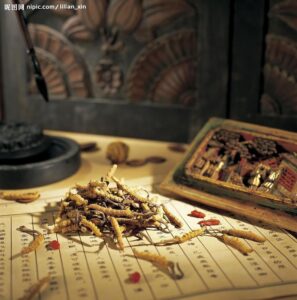Herbal treatment is the world’s oldest active form of health care and a major component of Traditional Chinese Medicine. It is a powerful method of healing and can treat a full range of diseases from acute and chronic illnesses to degenerative diseases caused by aging. Western medicine often works to control symptoms but often does not alter the disease process. Herbal medicine treats the underlying condition as defined by traditional diagnosis. It works by promoting the body’s own ability to heal and recover from illness.
By improving the immune system and maintaining healthy body functions holistically, herbal medicine has also been used to prevent diseases such as colds and cancer, it delays aging and prevents symptoms normally associated with aging.
Herbal prescriptions are written to fit the individual patient’s specific conditions. The most common method of taking herbs is by drinking tea prepared from raw herbs. There are also powdered extracts, pills, capsules, and topical treatments.
Are Herbs Safe?
Chinese herbs are very safe when prescribed correctly by a qualified, properly trained practitioner. Over the centuries doctors have compiled detailed information about pharmacopeia and placed great emphasis on the protection of the patient. Allergic-type reactions are very few.
Herbal prescriptions have a very low toxicity compared to synthetic drugs (including over-the-counter drugs). First, because of the complexity of plant materials, it is far more balanced than medicine based on isolated active ingredients and is far less likely to cause side effects. Second, because herbs are typically prescribed in combination, the different components of formulae balance each other, and they undergo a mutual synergy, which increases efficacy and enhances safety. Finally, herbal treatment seeks primarily to correct internal imbalances rather than to treat symptoms alone, and therapeutic intervention is designed to encourage this self-healing process.

